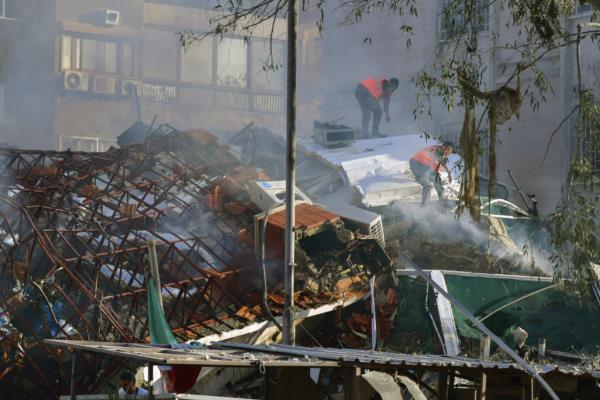
Following an airstrike on an Iranian consulate building in Syria, the United States quickly distanced itself from the incident, denying any involvement. However, concerns have arisen about potential retaliation against U.S. forces in the region. The airstrike, attributed to Israel, has raised tensions and the risk of deeper regional conflict.
The U.S. administration claims it had no prior knowledge of the airstrike but maintains a close military relationship with Israel, being a major supplier of weapons to the country. While Israel has not officially acknowledged its role in the attack, the U.S. has assessed Israel's responsibility.
Iran has issued warnings, holding the United States accountable for the strike that killed senior Iranian commanders in Syria. Historically, American forces have been targeted by Iran and its allies in the region as a form of retaliation against Israeli actions.
The top U.S. Air Force commander for the Middle East expressed concerns about potential threats to U.S. troops following Iran's accusations against the U.S. for Israeli actions. The U.S. has recorded numerous attacks by Iran-backed militias on its forces in Iraq and Syria, prompting a significant U.S. response in the past.



Analysts and diplomats speculate on possible Iranian retaliatory actions, including missile strikes or attacks on U.S. positions abroad. The situation remains complex, with uncertainties about Iran's intentions and Israel's strategic objectives.
While calls to limit U.S. arms support to Israel have increased, the Biden administration emphasizes Israel's right to defend itself against adversaries like Iran and Hezbollah. Israel's ongoing strikes on Iranian proxies in the region have heightened tensions and raised concerns about potential escalation.
As the region navigates through heightened tensions and the aftermath of recent attacks, the U.S. faces pressure to balance its support for Israel with efforts to prevent further escalation and maintain stability in the region.







